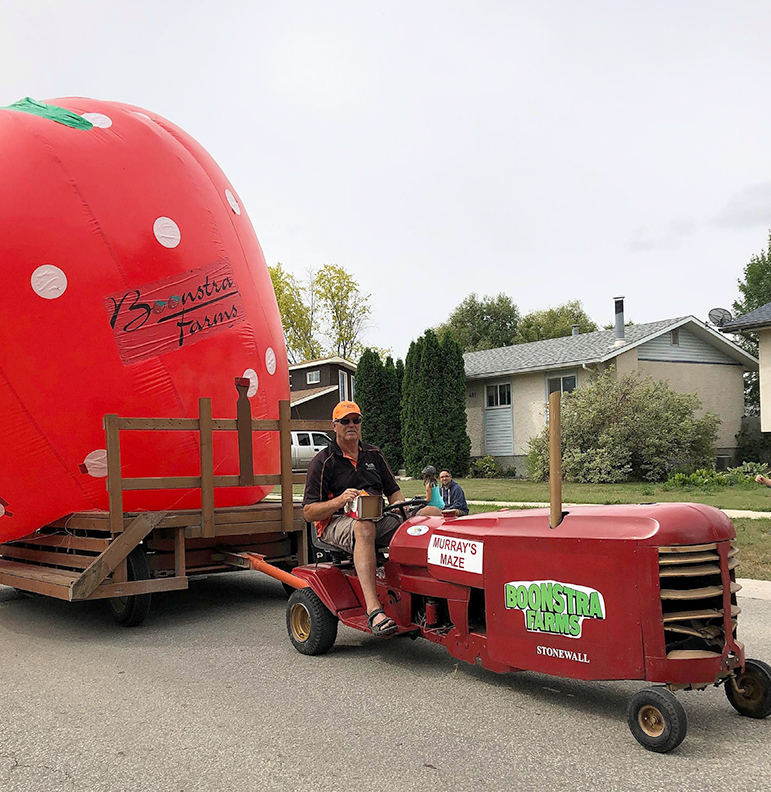Advertisement
Read this article for free:
or
Already have an account? Log in here »
To continue reading, please subscribe:
Monthly Digital Subscription
$0 for the first 4 weeks*
- Enjoy unlimited reading on winnipegfreepress.com
- Read the E-Edition, our digital replica newspaper
- Access News Break, our award-winning app
- Play interactive puzzles
*No charge for 4 weeks then price increases to the regular rate of $19.00 plus GST every four weeks. Offer available to new and qualified returning subscribers only. Cancel any time.
Monthly Digital Subscription
$4.75/week*
- Enjoy unlimited reading on winnipegfreepress.com
- Read the E-Edition, our digital replica newspaper
- Access News Break, our award-winning app
- Play interactive puzzles
*Billed as $19 plus GST every four weeks. Cancel any time.
To continue reading, please subscribe:
Add Free Press access to your Brandon Sun subscription for only an additional
$1 for the first 4 weeks*
*Your next subscription payment will increase by $1.00 and you will be charged $16.99 plus GST for four weeks. After four weeks, your payment will increase to $23.99 plus GST every four weeks.
Read unlimited articles for free today:
or
Already have an account? Log in here »
Hey there, time traveller!
This article was published 20/08/2022 (1189 days ago), so information in it may no longer be current.
The Boonstras recently made a significant contribution to the HSC Foundation—an endowed gift in support of neurology research—as an expression of their gratitude for the care Murray Boonstra received.
Murray Boonstra’s left side shook and trembled for about eight years. Levodopa and carbidopa—common Parkinson’s medications—helped some, but their effect waned over time.
“My condition got progressively worse,” says Boonstra, who owns and operates Boonstra Farms near Stonewall with his wife Pauline. “I know I shouldn’t have been embarrassed by the shaking, but I was. I didn’t like going out anymore and when we did, I’d either sit on my hand or keep it in my pocket.”

When your work is physically demanding, like Boonstra’s is, living with the stiffness, pain, and tremors of Parkinson’s is especially difficult. The Boonstras’ farm attracts many thousands of strawberry pickers every July, and the farm also includes animals, a corn maze, and other features that make the farm a desired day trip destination for many Manitoba schools. And when he is not tending to his fields or the field trips, Boonstra also sells RV trailers on his property.
Boonstra’s work and his quality of life depended on him finding a new way to keep his worst Parkinson’s symptoms under control.
He learned that he was a candidate for a brain procedure called “deep brain stimulation (DBS)” that could calm his tremors. The procedure was delayed because of COVID-19, but it was ultimately performed in November 2021.
“I knew that if I didn’t do it my condition was just going to get worse,” says Boonstra.“ I talked to some people who had it done and they said it was life-changing, so that convinced me.”
The procedure at HSC involved attaching a halo to Boonstra’s skull to keep his head still for the surgery. An electrode was implanted near the part of his brain responsible for motor function. That electrode was then wired to a transmitter implanted in his chest (like a pacemaker). Boonstra then received a handheld transmitter that allows him to control the electronic impulses, depending on what his tremors are doing. And he has been able to reduce his medication.
“It’s a miracle,” says Boonstra. “My tremors are under control. My movement is not 100 percent and I’m stiff a lot, but that’s part and parcel of Parkinson’s. I’m grateful that I can work and play pickleball three days a week.” (With 10 hockey-playing grandchildren, aged eight to 18, living nearby, he also spends a tremendous amount of time at the arena.)
The Boonstras recently made a significant contribution to the HSC Foundation—an endowed gift in support of neurology research—as an expression of their gratitude for the care Murray received.
“I knew that if I didn’t do it my condition was just going to get worse. I talked to some people who had it done and they said it was life-changing, so that convinced me.”– Murray Boonstra
“You can’t keep everything yourself. If you’ve been given a gift, it’s always better to give some back,” says Boonstra. “We belong to a church where giving is part of the culture. The more you are blessed, the more you can give. That’s all there is to it.”
Your gift to the Health Sciences Centre Foundation will help provide excellent care to patients like Murray Boonstra.
To donate, please visit hscfoundation.mb.ca, call 204-515-5612 or 1-800-679-8493 (toll-free).

This article is produced by the Advertising Department of the Winnipeg Free Press, in collaboration with HSC Foundation

